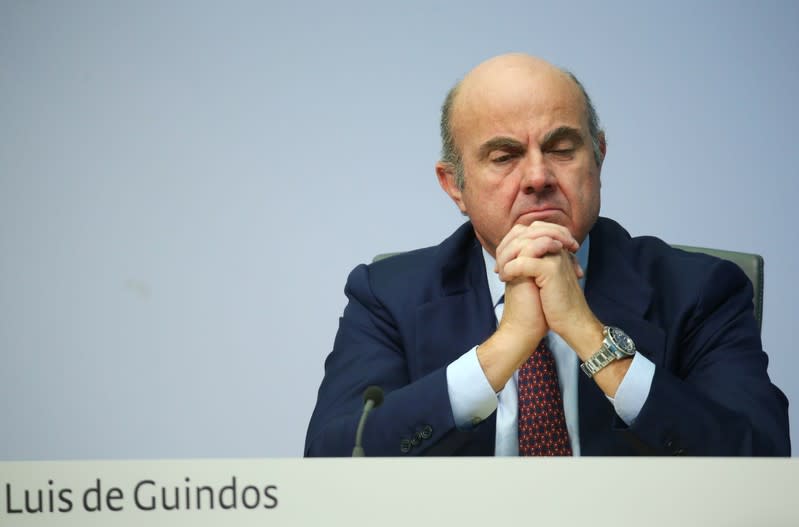Euro zone banks may need more buffers: ECB
FRANKFURT (Reuters) - Euro zone regulators should consider forcing banks to build bigger capital buffers as protection against an even bigger downturn that could lead to a credit crunch, European Central Bank Vice President Luis de Guindos said on Wednesday.
Having amassed capital over the last decade, the currency bloc's biggest banks are now well positioned to weather a downturn but most still lack an extra capital buffer that could be freed up during periods of stress.
"Even if we consider the level of capital to be appropriate, there still seems to be scope to have a higher share of capital in the form of releasable buffers," de Guindos told a bank supervision conference.
The problem is that in a downturn, banks hold up their capital ratios by deleveraging and disposing of assets, restricting credit to the real economy and aggravating any contraction.
Letting capital ratios fall is hardly an option, however, as this would restrict lenders' ability to pay dividends, a move frowned upon by shareholders.
Only seven of the 19 euro area countries have activated a countercyclical buffer and only a "very limited" amount of capital has been built so far, a potential risk to the economy.
De Guindos also warned that the global economic outlook was deteriorating and uncertainty was on the rise, creating a difficult environment for a bank sector that is already struggling with weak profitability, high costs and excessive competition.
"This environment might put pressure on banks' profitability and hamper their intermediation capacity as margins become squeezed and the flow of new business slows down," he added.
(Reporting by Francesco Canepa and Frank Siebelt; Writing by Balazs Koranyi; Editing by Catherine Evans)

 Yahoo Finance
Yahoo Finance 

